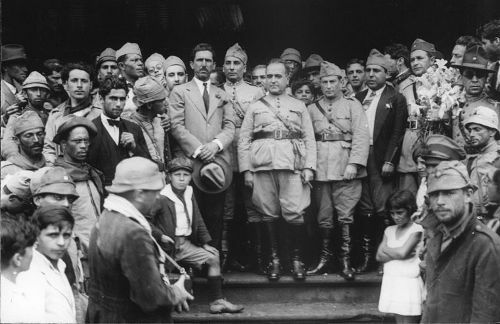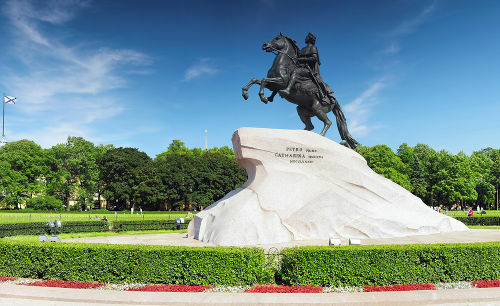Work is the set of activities developed with a certain final objective. These activities can be carried out in groups or individually.
Each society has a different way of giving meaning to work. Some consider it good, while others don't. This is because this notion is based on the historical, political, social and economic characteristics of each society.
Throughout history, humanity has developed different modes of work, including primitive, slave, feudal, capitalist and socialist.
Word Origin for work
The word work derives from the Latin, tripalium, which means “three sticks”. The term was used to name an instrument of torture, formed of three crossed wooden stakes.
Work has been essential for humanity since prehistoric times. During this period, tools were developed so that human beings could develop their activities.
The way society understands work is influenced by the political, cultural and economic contexts of each people's history. Below we will list the different forms of work developed throughout history
primitive work
Primitive work emerged in primitive communities with the development of the first tools, constructed of bones, stones and wood.
Primitive work sought to solve the needs of human beings in relation to their survival: hunting, fishing, construction and agriculture.
There was little division of labor and individuals were in equal positions of power.
In addition, there was also a sexual division of labor. While men were responsible for going out in search of game, women were responsible for protecting the camps and taking care of children and the elderly.
Slavery
With the development of society and the growth of coexistence groups, power relations begin to prevail. In this context, slave labor emerged.
A slave is considered the private property of his master.
Exhaustive manual services were given to slaves, as it was considered dishonorable for free men.
Aristotle, in Ancient Greece, defended slavery. According to him, to acquire culture it was necessary to have money and to have available time, the so-called idleness. Therefore, slavery was necessary so that citizens with property could think, read, reflect and participate in politics.
In Europe, slave labor developed in the ancient period and remained until the end of the Roman Empire, with the barbarian occupations and the beginning of feudalism.
In Brazil, slavery was present in the colonization process and remained legal during the Empire, until May 13, 1888.
Initially, slave labor was carried out by native indigenous peoples and later by African peoples.
feudal labor
During the Middle Ages, enslavement began to lose steam and serfdom took its place. The Catholic Church gained great prominence, strengthening a discourse against the enslavement of Christians by Christians.
There were many points of similarity between servitude and slavery, mainly related to the way the servant was treated by his master.
The main issue that differs both is ownership. In servitude, the serf is not considered private property, while in slavery, the slave is a thing, an object, that can be sold, exchanged or traded.
The serf has certain obligations to his lord, such as military protection and carrying out work on his estates.
Also in the Middle Ages, corporations emerged, which were types of workers' associations that sought to protect their professions, controlling the quality and price of the products to be sold. There were three types of workers at that time:
- Apprentices: young workers submitted to the master.
- Companions: they had the training after going through the previous phase, but they still couldn't be masters.
- Masters: were authorized to have their own business, for whom apprentices and companions would work
capitalist labor
Capitalism is a volatile system, which changes according to the context in which it is present. Therefore, in the same way, work within the capitalist model has different characteristics from the social, political and economic issues of a given time or society
Capitalism began to take shape at the end of the Middle Ages, with European trade with the East, which gained strength from the Crusades.
Gradually, Europe intensified maritime trade, in the so-called Great Navigations. Thus, products were bought in the East and brought to the West to be marketed at very high profit rates. Countries such as Spain, England and Portugal benefited greatly from this trade model.
With the growth of the political and economic importance of the bourgeoisie, Europe began to see the emergence of large industries, in the period of the so-called Industrial Revolution.
The Industrial Revolution marked the transition from artisanal production to machine manufacturing, through mechanized industrial activity.
With her, there was a greater social division of labor. That is, more and more a product needs to go through "more hands" before being finalized.
Initially occurring in England, the Industrial Revolution defined a dichotomy between the owners of the means of production (bourgeoisie) and those who sold their labor (proletariat).
The proletariat did not own the means of production, worked at low wages, had no labor rights, worked long hours and lived in precarious conditions.
In response to these conditions, movements to destroy machines and other protests against the exploitation of industries against the proletarians took place.
It also marked the beginning of Social or Labor Law.
socialist work
In this context of Industrial Revolutions, some critics of capitalism, such as Karl Marx, developed research with with the intention of thinking about alternative economic models to be applied, which would be less harmful to the class hardworking.
Thus, in the twentieth century, the greatest expression of these ideas is ratified in the USSR, with the implementation of a socialist system of government.
Work, within the socialist model, seeks to break the class struggle and the domination of industries by the bourgeois class. These should be commanded by the proletariat.
In this context, Marxist ideas defended the existence of a society without social classes.
This transition would take place in stages, considering that a drastic change in the mode of production should not and could not happen suddenly and quickly.
In socialist work, profit, which in capitalism is destined for the hands of (owners of capital, money), should be redistributed equally and fairly to all workers.
The work should also be carried out in a shorter time, allowing the worker to dedicate himself to other activities in his life than just his job.
Read more: alienation from work
How different societies understand work
As we have seen, the notion that each society has regarding the meaning it produces about work. During antiquity, it was associated with something bad, a sacrifice. Greeks and Romans saw it as something degrading.
In Christianity, work was a punishment. We can analyze this view from the biblical narrative of Adam and Eve who, as punishment for eating the forbidden fruit, were forced to survive through the sweat of their own face.
In capitalist societies, especially with the Industrial Revolutions, work is seen as something positive, which enhances the human being.
Here, work is seen as an activity that occupies almost all of the individual's living space. Therefore, the existence of an individual is linked to his position. Your personal success is directly related to your professional success.
Therefore, we can notice that the existing ideology about work changes the way it is seen in each moment of history.
Read more:
- Job market
- International Division of Labor
Bibliographic references
LINDEN,. van der. Labor History: the old, the new and the global. Worlds of Work Magazine, Florianópolis, v. 1, no. 1, p. 11–26, 2009. DOI: 10.5007/1984-9222.2009v1n1p11. Available in: https://periodicos.ufsc.br/index.php/mundosdotrabalho/article/view/1984-9222.2009v1n1p11. Accessed on: 11 Apr. 2023.
RIBEIRO, Carla Vaz dos Santos and LEDA, Denise Bessa. The meaning of work in times of productive restructuring.Study researched. psychol. [online]. 2004, vol.4, n.2 [cited 2023-04-11], pp. 0-0. Available in:. ISSN 1808-4281.
SOUZA, Thiago. Work history: definition, meaning and types of work.All Matter, [n.d.]. Available in: https://www.todamateria.com.br/historia-do-trabalho/. Access at:
See too
- Social Division of Labor
- Job market
- What is the Alienation of Labor for Marx?
- DIT: International Division of Labor
- Feudalism: what it was, society and features
- work in physics
- What is slavery and its history in the world
- Energy


